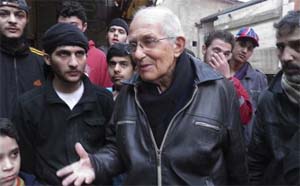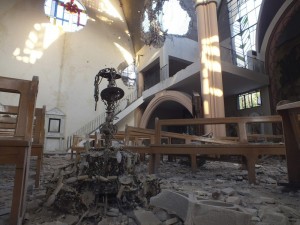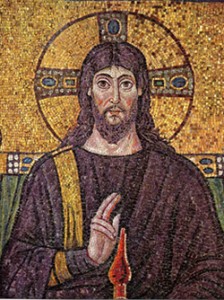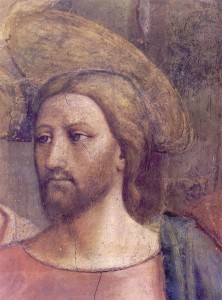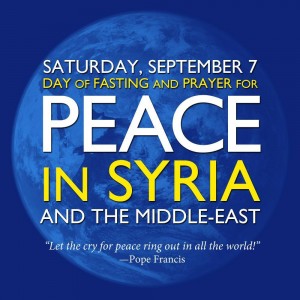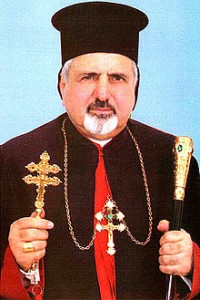 A month ago Patriarch of Antioch for Syriac Catholic Church Ignatius Jospeh III Younan, 68, delivered an addressed entitled, “An advocacy for the survival of Christians in the Middle East,” in Bratislava.
A month ago Patriarch of Antioch for Syriac Catholic Church Ignatius Jospeh III Younan, 68, delivered an addressed entitled, “An advocacy for the survival of Christians in the Middle East,” in Bratislava.
Younan was the first eparch of the Eparchy of Our Lady of Deliverance centered in New Jersey. He was elected patriarch of the Syrian Catholic Church in 2009. At the time of his election the Syrian Catholic Church numbered c. 132,000.
Patriarch Ignatius offers a perspective not readily heard in the secular media outlets. And while some will say he is advocating for the Christians in Syria, he’s actually advocating for peaceful coexistence for all who live in the Middle East. The sufferings that our brothers and sisters in Syria are facing each day are but a drop in the bucket that others around the world also encounter. While we don’t know the violence and oppression in the Western world as do the Middle Easterners, we are aware of the meaning and contours of human indignities.
When Pope Francis called for a day of fasting and prayer several weeks ago for peace in the world, he didn’t do so without knowing the concrete faces many men and women and children. We all have to make peace in Syria and all the Middle East a priority and not merely a public relations opportunity…and realize that “the war is the defeat of humanity.”
Saint Ephrem and all Syrian saints and blesseds, pray for us.
Younan said,
Since I was elected to Patriarch of Antioch January 2009, I already visited 10 times Iraq, the war torn country, and where we already lost close more than the half of our faithful who emigrated abroad or still waiting to emigrate as refugees in neighboring countries. I visited 3 times Turkey where only a tiny minority of Christians still live, mostly in the huge Istanbul area. I already made visits once to the Holy Land, twice to Jordan and Egypt. I also traveled 3 times to Kerala, India, to strengthen ties with our sister Churches of Syriac heritage, the Syro-Malankara and the Syro-Malabar Churches.
Therefore, by experience, I can tell you that, like all Catholic and Orthodox Patriarchs, I am acquainted with the plight of most Christian communities in the Middle East. Because of the unending spiral of violence, that is undermining the very existence of non Muslim minorities, particularly Christians in lands that was the cradle of early Christian Communities, we have the very reason to fear falling in limbo following the upheaval of the regime.
But the greatest concern we have at the present time is the terrible situation happening in Syria, my birth country where my parents, fleeing Turkey, sought refuge right after the First World War. The last time I could visit Aleppo, the second largest city of Syria was in the summer of last year. Since then I only had to communicate with the bishops, clergy and faithful of our 4 Syriac Catholic Dioceses, Damascus, Homs, Aleppo and Hassakeh by phone calls when available.
Because of the ongoing bloody conflict in Syria, that lasted already more than two and half year, this country so deeply rooted in the ancient civilization, is horribly ravaged by a sectarian religious civil war, that quickly as we warned, turned into a regional even international conflict. We have reason to believe this conflict was triggered by the Sunni Muslim majority supported by some Western countries for a geo-political agenda. Some politicians in the West, pretending to defend democracy, with the complicity of agglomerate media, gave up their own principles and values. It seems that behind this confusing attitude, was the fear of violence coming from radical Sunni Muslims, and the secularist opportunism that worships modern times “Mammon”!
One must recognize that after Turkey a century ago, Palestine and Lebanon some decades ago, and Iraq for the past 20 years, it is Syria now that knows the frightening exodus of its Christian population living there for millennia. This country has been rocked since March 2011 by a conflict triggered by opponents and rebels, who initially pretended a peaceful change of a regime blasted as a dictatorial. Although Syria was commonly known as the second country in the Middle East, after Lebanon, that respected all religious denominations and exercised tolerance towards all minorities including Christians.
Now it is a common understanding that Syria well rooted in ancient civilization like Mesopotamia and the Nile Valley, is ravaged by a sectarian war, between two religious denominations: the Sunnis who make the majority of the population and the Alawites (a Muslim sect not recognized by the Sunnis as true Muslims) who used to be marginalized even mistreated for centuries, because of hateful discrimination, until they ascended to power in the 1970s.
As a result of the violent turmoil in Syria, over one hundred thousand were killed, millions were displaced inside the country or became refugees in neighboring countries, living in a horribly inhumane conditions.
Fighting, bombing attacks, kidnapping and killing horrified and alienated mostly innocent population looking for peace and security. The chaos that led to the civil war, brought a horrendous destructions of a country known to be one of the safest in the region. Massive emigration resulted that needs immediate intervention for humanitarian assistance, as the winter is approaching, while spring seasons seem fading!
We still remember the insidious Machiavellian assertions of Western politicians telling publicly since the beginning of Syrian tragedy, that it will be soon an end by the fall of the regime. On the contrary, as we feared, the crisis turned into chaos, and the chaos ultimately led to the most horrible sectarian civil war in recent generations.
As you are well aware, this sectarian war spread to many areas, and Christians have been targeted by radical groups. Several churches and monasteries have been heavily damaged and even burned.. Exactly what we, Christian leaders, warned most often of, since the beginning. (Maaloula and Raqqa are the latest examples.)
We, Christians of the Middle East, we really do not understand why politicians of the Western World, believing in principles of democracy, ignore that what is happening now in Syria, is far from seeking a true democracy, freedom and equality for all citizens. At one hand, those politicians profess a separation of Church and State in their own countries, while they tolerate emerging regimes based on political Islam with a clear agenda of applying the Sharia and professing an amalgam between the religion and every aspect of life, individual or public!
Christian Leaders in the Middle East, particularly in Syria, made many statements that clearly say that they do not side with any governing person or family, neither with any regime or political party. They did urge all parties in conflict to act for reconciliation and to seek reforms by a patient dialog not with violent means.
Looking at what did happen to the Christians in neighboring Iraq, we have believed that any political change of the regime in Syria should have been solely peaceful. First of all we feared that this sectarian conflict between Sunnis and Shiites with their multiform denominations, will undoubtedly spread to Lebanon that hangs to a very delicate balance and other Middle Eastern countries. It is primarily the duty of the Sunni majority to inspire confidence and respect the civil rights of all minorities.
This is the message of the Holy Father Pope Francis, who kept praying for peace and calling for a reconciliation among all components of the Syrian people. We owe the Successor of Peter a lot of gratitude for his courage following the steps of the Divine Master and proclaiming that “the war is the defeat of humanity.”
Christians of the Middle East are facing in recent times the greatest challenge of their history that put their very survival at risk. Given the spreading of violent radicalism in political Islam, the young generations instead of remaining rooted in the land of their ancestors, to be witnesses to the Lord, they are seeking freedom and dignity in the lands of emigration. Let us remember any evangelization is still a proselytism forbidden in countries where Islam has the majority. Because Islam does not recognize the religious freedom, it condemns those willing to embrace the Christian faith even to death! Unless, the community of nations clearly and without any politically correct language or condition, defends the Charter of Human Rights, as it was adopted by the United Nations in 1948, the Middle East will continue to sink in a fatal hemorrhage emptying itself of Christian communities that lived for millennia in that region.
We have confidence that you, dear brother shepherds, will do whatever you can to bring Catholics to awareness to the plight of Christians in the Middle East. We need you to waken up the silent majority of citizens, who are lovers of truth in charity, seekers justice to all and who want to be peace makers in our turbulent world.
“…Remember in your prayers the Church which is in Syria, from which also I am not worthy to receive my appellation, being the last of them.” (From the Letter of Saint Ignatius of Antioch to the Trallians)
